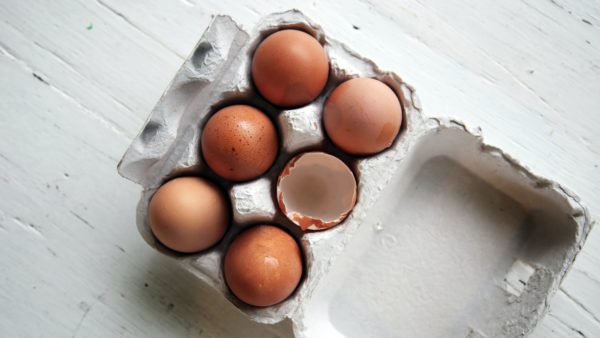I know that mainstream media is trying to portray being overweight (or even obese) as a virtue but that’s not what I stand for.
The good news is that sustainable weight loss doesn’t have to be complicated – just the opposite, especially with these Scientific and sustainable weight loss tips for beginners.
According to a 2018 study from the University of North Carolina at Chapel Hill’s Gillings School of Global Public Health, 88% of Americans are metabolically unhealthy.
While there are many metabolically unhealthy people at a “normal” weight, only 5% of obese people can claim to be metabolically healthy (and that’s if we use a very loose definition for “metabolic health”).
There are many reasons why you might want to lose the extra weight – starting from pure vanity (nothing wrong with it) and to improving health and mobility.
That said, I encourage you to change your perspective and shift your focus from chasing smaller clothing sizes to chasing a healthier and sustainable lifestyle.
After all, nothing tastes as good as skinny healthy feels.
If you’ve been struggling with your weight for a while, you might be painfully familiar with how unsuccessful extreme diets are, the so-called yo-yo effect, and the misery, and frustration that come from a poor relationship with food.
This mental battle can be truly exhausting and you might be starting to believe that you’re better off overweight than torturing yourself with unrealistic meal plans and never-ceasing temptations.
Maybe you even started to believe that that’s just how your body is – you’re just meant to be overweight.
I assure you, that’s hardly the case.
All you need is the right approach and to focus on some basic health pillars.
Related read to the Scientific And Sustainable Weight Loss Tips:
5 Sneaky habits that prevent you from losing weight
The Best 7 Scientific and Sustainable Weight Loss Tips
1. Improve your gut health
There’s mounting evidence to suggest that the gut microbiome (a.k.a all the microorganisms such as bacteria, fungi, and viruses living inside your digestive tract) plays a huge role in your overall health.
The most researched microorganism in the gut is bacteria. There are between 500 and 1000 species in the human gut microbiome, with some recent studies even suggesting up to 2000.
But the important thing to keep in mind is something else.
Keeping your gut flora balanced (“good” vs. “bad” bacteria) is key to good health.
For example, gut health links directly to your immune system.
There’s a lot of interaction going on between the bacteria in your gut and the immune system.
Around 70% of the immune system is hosted in the gut.
Another important point is the close connection between gut health and hormonal status. Gut dysbiosis can cause all sorts of hormone-related pathologies.
For example, there’s a specific group of bacteria responsible for metabolizing and regulating the body’s estrogen called estrobolome.
Whenever the estrobolome gets imbalanced (due to inflammation), the estrogen production can be driven in either direction leading to further health complications such as weight gain, osteoporosis, PMS, etc. (2, 3)
How to improve your gut health?
There are a few simple rules:
- Consume as little processed foods as possible.
- Focus on whole, minimally processed foods.
- No sugary drinks, no processed sugar as a whole.
- Include fermented foods in your diet – sauerkraut, kimchi, yogurt, etc.
- Drink enough water.
Remember – one of the quickest ways to invite chronic inflammation and imbalanced gut flora is to make sugar a regular part of your diet.
Our modern-day processed foods are created to get you addicted. In time, they alter the body’s natural hunger signals (disrupting the secretion of hormones like leptin & ghrelin) and it becomes increasingly easy to overeat.
This would hardly ever happen with whole foods such as eggs or steak. You’ll most likely eat till you’re satiated and eat again once you feel hungry.
2. Improve your sleep quality

I know what you’re thinking – it’s easier said than done.
It’s one of the modern-day paradoxes – we’re constantly tired, yet we find it hard to sleep.
Poor sleep is another major hormone balance disrupter.
When we’re not getting enough sleep two metabolic hormones controlling our hunger and satiation signals – ghrelin and leptin – get disproportionally produced.
The body releases more ghrelin thus spiking our appetite and less leptin – making us feel less satiated.
As a consequence, when we’re sleep-deprived, we’re more likely to overeat. (4)
Another negative consequence of poor sleep is the increased secretion of insulin from the pancreas compared to when the body is well-rested.
To simplify it, it goes like this:
Sleep deprivation -> Feeling tired -> Less likely to exercise/be active -> More likely to have sugar/junk food cravings -> Poor diet & Chronic Inflammation -> Poor mental health -> Sleep deprivation.
There’s no doubt that sleep is one of the most important pillars of good health.
I even have an entire article on improving sleep quality where I share over 10 simple tips that improved my sleep quality immensely.
3. Eating more protein

What are proteins?
Proteins are one of the three macronutrients (nutrients used by the body to produce energy), the other two being carbs and fats.
1gr Protein = 4 calories
1gr Carbohydrates = 4 calories
1gr Fats = 9 calories
As we mentioned, proteins are essential and are the building blocks for muscle tissue, organs, bones, skin, hair, etc. In short – they build our bodies’ entire structure.
How can proteins help you lose weight?
Protein keeps you full longer and controls appetite
Protein-rich meals will keep you full longer and reduce the production of the so-called “hunger hormone” ghrelin. (5, 6)
Both your hunger and appetite will naturally stay suppressed for hours after eating which makes you less likely to overeat.
The protein-rich diet promotes fat loss
A common side effect of calorie restriction and weight loss is a slower metabolism.
One of the reasons for that is that when you’re consuming fewer calories your body begins to use muscle protein to assist itself in energy production (along with the breakdown of fat).
In short – you lose both fat AND muscle.
The good news is that by increasing your protein intake you can minimize the loss of muscle tissue and maximize fat loss. (7)
This will boost not just your weight loss process but give you a more favorable body composition as well.
Things to keep in mind about protein
Proteins are large biomolecules made up of small organic compounds called amino acids. There are 22 amino acids, 9 of which are considered essential because the body can’t produce them itself. They need to be consumed through food.
In general, animal protein is considered to be a “complete” source of protein because it contains all essential amino acids in optimal amounts.
Protein sources such as eggs, meat, fish, and seafood are a great foundation for a protein-rich diet.
Stir away from processed meats and, whenever possible, source them from local farmers.
If you want to learn more about macros and how much protein you need to take depending on your goals, you can grab this short and informative freebie I made a while ago through the link below.
Related read to the Scientific And Sustainable Weight Loss Tips:
Macros vs. Calories Explained
4. Drink more water

I know you’ve heard this a thousand times already but it’s true – hydration is essential for every single process happening in our body.
Unfortunately, when we’re having a busy day and jumping from one task to another, it’s easy to overlook the signals of dehydration the body sends us.
Common symptoms of dehydration are sleepiness, brain fog, feeling hungry, dry mouth, and headache.
Apart from being too busy, another reason for not drinking enough water during the day is the fact that we’ve grown accustomed to reaching out for all sorts of other beverages like soda, coffee, tea, etc.
Simply cutting out sugary drinks like soda or frappuccinos and drinking water instead may help you lose a few pounds without putting in any additional effort (plus the bonus of less sugar -> less inflammation).
Multiple studies are showing that increased water intake (at least 1.5l per day) leads to weight and fat loss over a few weeks, regardless of other variables such as exercise or dieting. (8, 9)
You can start by making it a point to drink at least one glass of water before meals and 1-2 glasses right after bed.
5. Keep a food journal

Oh, the number of times I’ve heard this – “I eat healthily but I can’t seem to lose any weight!”.
Well, here’s a fact that blows minds – “healthy” foods have calories too!
And the same rule applies to both “healthy” and “unhealthy” foods – if you consume more calories than you burn – you’re going to gain weight.
It’s a very common phenomenon to UNDERestimate the amount of food/calories we consume daily.
Done right, a food journal might be your absolute best tool to achieve not just sustainable weight loss but a sustainable lifestyle change.
Benefits of keeping a food journal:
- Educational. Keeping a journal will force you to learn more about the nutritional value of foods and how they affect your body.
- Getting a complete overview of what goes into your body.
- Helps you to stick to your goals.
What to keep in mind when starting a food journal?
- Strive to write down your food intake straight away. This way you can keep it as accurate as possible.
- Be very meticulous with it – note down everything you add to your meals or beverages. For example, don’t overlook the sugar you put in your coffee or the size of your frappuccino.
- After a few days of keeping the journal, sit down, and reevaluate your food intake.
- Use an online calculator to estimate your daily calories and see which foods bring you over that number. You can also use one of the many apps available online to track your calorie intake.
- Don’t just track your food intake. Write down how you feel before and after meals, as well as your overall mood for the day. This way you can easily spot food intolerances and how each food affects you.
- If you happen to have a binge eating episode, make sure to write down not just how you were feeling before and after but what you were doing around that time as well.
This will help you identify the triggers that unlock such behavior and help you avoid it in the future.
6. Exercise

Again, there’s nothing revolutionary about saying this but hey – it’s the simple things that truly matter.
Regular exercise has so many benefits that it’s practically imperative for good health.
Benefits of strength training:
- Increased fat loss (as opposed to weight loss where you lose both muscle and fat) and improved body composition.
- Better metabolism (thanks to more muscle mass).
- Improved bone health.
- Improved mood and hormone profile (you feel better and sleep better).
The list can go on and on.
You can start with 3x a week of strength training and 1 day of cardio to keep your endurance and heart on point.
Trust me, it will transform your life!
If you’re new to training and you’re still too intimidated to join a gym you can start with some at-home bodyweight workouts.
Of course, you can always invest in some fitness equipment like a set of dumbbells or a kettlebell and start your resistance training journey at home.
Once you start regular exercise, don’t forget to take the time to stretch, foam roll, and work on your flexibility.
7. Manage your stress levels

Making all these lifestyle changes in pursuit of health won’t bring you much unless you put equal efforts into your mental health as well.
Body and mind are truly connected in more ways than we can imagine.
It’s no secret that stress is one of the most common causes of the majority of mainstream diseases.
Stress can affect the body in many ways – it can give you tight muscles, headaches, and stomach pain, and it can unlock depression and anxiety disorder.
Psychological stress can also influence your weight by disturbing the hormone balance.
When experiencing chronic stress the body reacts by releasing more cortisol. Chronically high cortisol levels can affect many processes in the body, including slowing down your metabolism. (10)
I went through this myself and unlocked a pretty unpleasant autoimmune condition. I had no choice but to take the matter into my own hands and start taking stress management seriously.
How can you manage stress?
It depends on you and your idea of relaxation. The only requirement is that you set aside some me-time and stick to it.
You might want to try out meditation – there are plenty of guided meditations online which are great to start with.
Meditation is an excellent tool to learn to control your mind and thoughts and improve focus.
Get fresh air, spend time in nature, devote time to personal hobbies, read or journal – anything that can give you relaxation and a temporary escape from daily problems.
Final thoughts on sustainable weight loss
Sustainable weight loss starts with a change in mindset.
Realizing that there’s no magic pill/skinny tea or revolutionary diet is the first step.
Don’t focus on the scale but rather on improving health, getting stronger, and learning new skills. The results will follow.
Stick with the basics – follow the above sustainable weight loss tips and stay consistent: good nutrition, good sleep, fresh air, exercise, and family time – this is all you need.